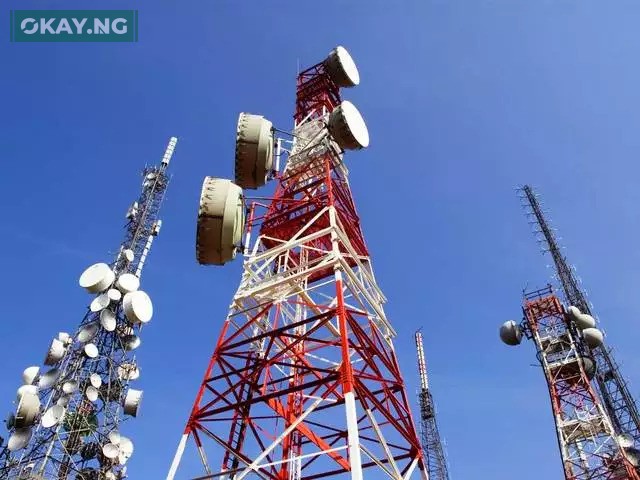Dr. Falade Muritala Adesola
With more investments and higher expectations, the Nigerian telecoms sector has consistently contributed to the growth of the Nigerian economy. While the market size and loquacious nature of the country’s population are significant factors in the sector’s viability, the crucial role of the regulatory body, the Nigerian Communications Commission (NCC), currently led by Dr Aminu Maida, cannot be overstated. Effective regulation is a critical variable in the success of any industry, and the NCC’s leadership has been instrumental in shaping the sector’s progress. However, current realities in the country suggest that a lot remains to be done.
If we take a moment to reflect on the past and consider the incredible technological advancements that have transformed our society, we will undoubtedly find them astonishing. These advancements carry profound implications for our future and compel us to ponder how our world will continue to evolve.
In any human society, whether it’s a simple tribe or a highly developed civilization, communication is essential. Without the ability to share information and ideas, it would be difficult for people to come together, collaborate, and make important decisions that affect everyone. Communication enables cooperation, the creation and exchange of goods, the sharing of knowledge and ideas, and providing help and support to each other when it’s needed. This makes the telecoms sector a very strategic one.
The global spread of mobile phones has further transformed communication, offering new opportunities and challenges. This technology has revolutionized the telecommunications sector, requiring adaptable strategies for both developed and developing countries.
As the popular saying goes, “In a city that has no laws, there is no crime,” governments therefore continue to prioritise the establishment of strong, independent regulators to prevent chaos and ensure that national development goals are achieved.
Beyond concerns around quality of service and enhancing communication experience, the regulation of the telecommunications sector has been motivated by the need to ensure fair competition when market forces alone are insufficient. The goal of universal services, particularly in enabling customers to receive and make calls, has also influenced the regulation of basic telecommunications services. Nowadays, basic telecommunications services are widely regarded as essential, and regulations are in place to ensure it is affordable and widely available. Over the last two decades, many telecommunications markets have attained a certain level of regulatory maturity, establishing separate regulators, and competitive frameworks.
In Africa, the telecommunications industry is experiencing rapid changes, with the market valued at approximately $63.17 billion in 2024. It is projected to surpass $82.34 billion by 2029, growing at an annual rate of 5.44%. This growth is strongly linked to Africa’s youthful population.
Kenya, an East African technological hub, boasted a telecommunications market worth around $3.3 billion in 2023. The total telecom service revenue in Kenya was expected to grow at a compound annual growth rate (CAGR) of more than 2% throughout 2023. South Africa also holds significant influence in the African telecom market, where it is projected to generate approximately US$16.0 billion in revenue from communication services by 2024.
Nigeria is also widely recognised as one of the major telecommunications markets in the world. With a population of over 200 million and blessed with abundant natural resources, Nigeria ranks as the 14th largest oil producer in the world and the telecommunications sector contributes as much as 14% to the GDP. This makes it an attractive prospect for potential investors looking to tap into the largely untapped telecoms market.
The outcome of the telecom sector will have an immense impact on other sectors of the Nigerian economy. At a breakfast session organised by the Lagos Business School (LBS), Bismarck Rewane, the CEO of Financial Derivatives Ltd, said, “Big push theory posits that growth in one sector can stimulate growth in others through backward and forward linkages. The telecom sector has both forward and backward linkages to various sectors. This linkage to other sectors is vital for economic growth, innovation, and productivity across various industries making it a key enabler and driver of development in modern economies. If the telecom industry collapses, all other sectors will follow.”
Recognizing the pivotal role that telecommunications can play in national development, the Nigerian government is dedicated to rapidly expanding telecommunications facilities and services through adequate efforts of regulatory bodies. Private investment in the sector has surged from $50 million in 1999 to over $70 billion twenty-one years after, leading to a rapid growth in subscriber numbers.
The advancements and progress in these industries are largely driven by the visible efforts of the regulatory bodies overseeing them. Meanwhile, they are not without their challenges. South Africa’s telecoms sector is regulated by the Independent Communications Authority of South Africa (ICASA), Kenya, Communications Authority of Kenya, and Nigeria, the Nigeria Communications Commission; all responsible for ensuring fair play, continued infrastructural development and quality of service. The Nigerian Communications Act of 2003 further empowers the NCC to effectively carry out its responsibilities as the independent regulator of the industry in Nigeria. Additionally, the Act established the office of the head of the NCC, led by an Executive Vice Chairman (EVC), who is responsible for overseeing the regulation of the telecommunications sector in the country.
The body has continued to facilitate private sector participation in communication services delivery and regulate the activities of the operators to ensure consistency in the availability of service delivery and fair pricing. The incumbent Executive Vice-Chairman, Dr. Aminu Maida is making significant strides despite the numerous challenges that plague the industry. The NCC recently obtained right-of-way (RoW) fee waivers in six states. Typically, some States require telecom operators to pay these fees to install fiber optic cables along roadways. High right of way fees have been a significant barrier for telecom companies, hindering the expansion of broadband access and infrastructure. These waivers will allow telecom operators to deploy infrastructure more easily and cost-effectively, facilitating broader internet coverage.
The EVC’s stance is also evident in his advocacy that the telecom infrastructure should be regarded as a national infrastructure, reflecting its critical role in the nation’s development. It should be co-managed in partnership with the telecom industry, which operates and maintains it. This collaborative management approach would address issues like frequent fiber cuts caused by uncoordinated activities of engineers and builders who often do not consult the sector’s regulator before proceeding with their work. Such disruptions are a major cause of vandalism and service interruptions. His advocacy has resulted in government action to make cable damages and vandalization of telecom infrastructure a criminal offense. This proactive approach not only discourages future irresponsible behaviour but also helps in maintaining uninterrupted services for the public.
Consumers today have a growing reliance on staying connected and having fast internet speed. The increasing demand for high-speed applications like video streaming and gaming, along with the expansion of the mobile ecosystem, is driving the need for better broadband connectivity. This demand has put pressure on the industry to improve the availability and quality of broadband services, resulting in connectivity issues.
To address this, the regulatory body has continued to lay emphasis on the need for operators to move from quality of service to quality of experience, which is a holistic approach to improving customer experience in the industry.
Indeed, the telecoms sector is on the rise. However, additional safeguards are necessary to sustain its growth and ensure long-term viability.
Dr. Falade Muritala Adesola is a Senior Lecturer and former HOD, Computer and Information Sciences Department, Trinity University.













